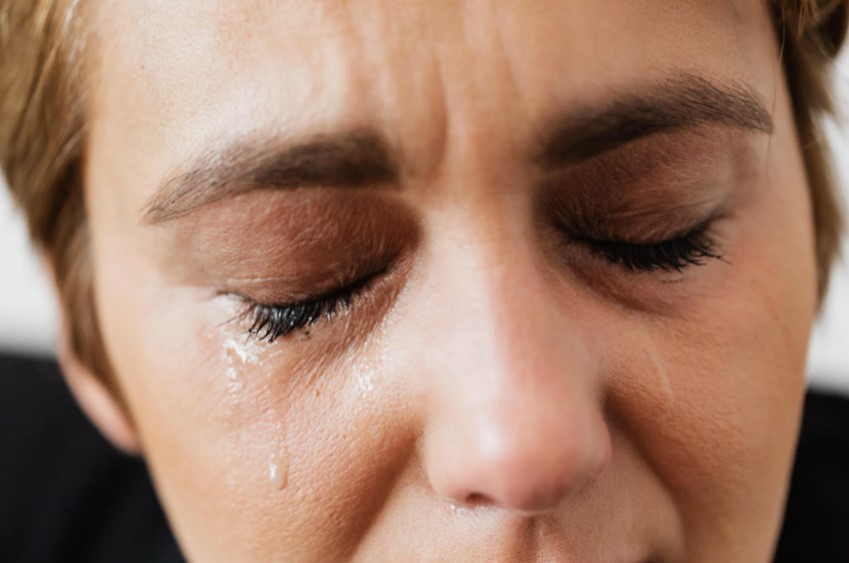BiPolar. Depressed. Nuts. Confused. Scary. Dumb. Crazy. Spastic. Stressed. Demented.
Women know how painful it is when someone close to them called them these things when they go through the feels. Whether mental health issues are ongoing, temporary, diagnosed, or self-diagnosed, it doesn’t matter. When a woman cannot get a grip because life is becoming too much, they need to know that they are okay, life will be OK, and that help and support is available. Some of this has to come from within, but there are many different sources of outside help that are available, especially if you don’t know where to start.
Challenging Stigmas

Breaking the stigma of mental health has been an aim for men and women for decades. According to the Office on Women’s Health, one in five women experiences issues with mental health. Issues like anxiety and depression are often triggered by stress, pregnancy, trauma, hormones, genetics, and, let’s face it, everyday life! Women are more likely to abuse prescription medications than men as a form of temporary relief from the anguish of mental health, which leads to even more issues for the individual, the family, relationships, and society. While men are more likely to complete a suicide attempt and die, women attempt suicide more often, often a clear sign of distress and a cry for help. Before women get to that point, we have to look very carefully at the reasons why they get to that point. It can be easy to be dismissive of someone else’s hard times when we know that everyone struggles at some point, and there’s no shortage of trite memes and weak affirmations on the internet that do little to address the problem.
However, washing over mental health issues with terms like “self-care” does not erase the stigma that is causing millions of women not to get the help they need. Whether a psychiatrist prescribing anti-depressants, attending group therapy, or seeking individual counseling, many women go through years with untreated mental health because social media tells them a bubble bath or yoga will help. One of the least helpful pieces of advice is to just “spend some time outside.” Other more predatory attempts try to make people feel like buying something will help them feel better, a myth often perpetuated by marketing efforts by a variety of corporations more interested in money than well-being. There’s no essential oil for depression. There’s no credit card that can cure anxiety.
Too Complicated for a Meme to Solve

Every woman is going to go through a bad day. Some women go through years of complex and toxic relationships. Some do not know how to process grief. Whatever it may be, if someone is experiencing out-of-the-norm emotions for over two weeks, chances are, some biochemical changes in the brain are making her debilitated from doing everyday activities like showering. So many times, we see memes of women who are crying in the shower or so anxious that they can’t make a phone call. The stigma of mental health has created an environment leading these women to think that they are crazy or leading others to label them as bipolar.
In reality, women’s mental health management would be much more effective if we looked at it from a biochemical standpoint. Mental health is when the brain chemistry changes. Brain chemicals like dopamine, serotonin, oxytocin, and endorphins are not being produced at a level that equips women to handle their internal or external environments. Often, adjusting the setting or adjusting the biochemical reactions is the only way women can find long-term relief. This is true for men as well, but biologically speaking there are key differences in men’s and women’s physiology that make a case by case approach more effective than a one-size-fits-all analysis of biochemistry imbalances in individuals.
Alleviating the Real Problem
Although there are several things that a woman can do to help to alleviate their symptoms, treating the root of the problem is so much more important than just trying to keep up with symptoms. If a woman is in a horrible living environment, yoga may bring relief, but it doesn’t fix the problem. If a woman feels anxious at work because of pressing deadlines, going shopping isn’t going to correct the problem. Fixing the problem means learning the proper coping mechanisms to deal with mental health effectively.
With a high level of suicide and overdoses linked to mental health, prolonging treatment because of the stigmas attached is not going to be suitable for the individual or those closely related to her. The problems could range from attitudes to hormone imbalances, and you won’t know which is which unless you get tested. You could start with a hormonal imbalance quiz and go from there. Just because you know someone who dealt with a mental health problem one way and it worked for them doesn’t mean that it will always work for you. You have to take an individual approach to your mental health and not fall into the traps that come with broad sweeping generalizations about mental health.
With twenty percent of the population struggling with mental health, women must seek the treatment they need versus just trying to find a quick fix to relieve their anguish. Yes, women must take care of themselves, especially during difficult times like after pregnancy and stressful events. However, it is even more critical that they feel safe and secure getting the proper treatment they need so that the problem does not become chronic and doesn’t cause permanent disability.


